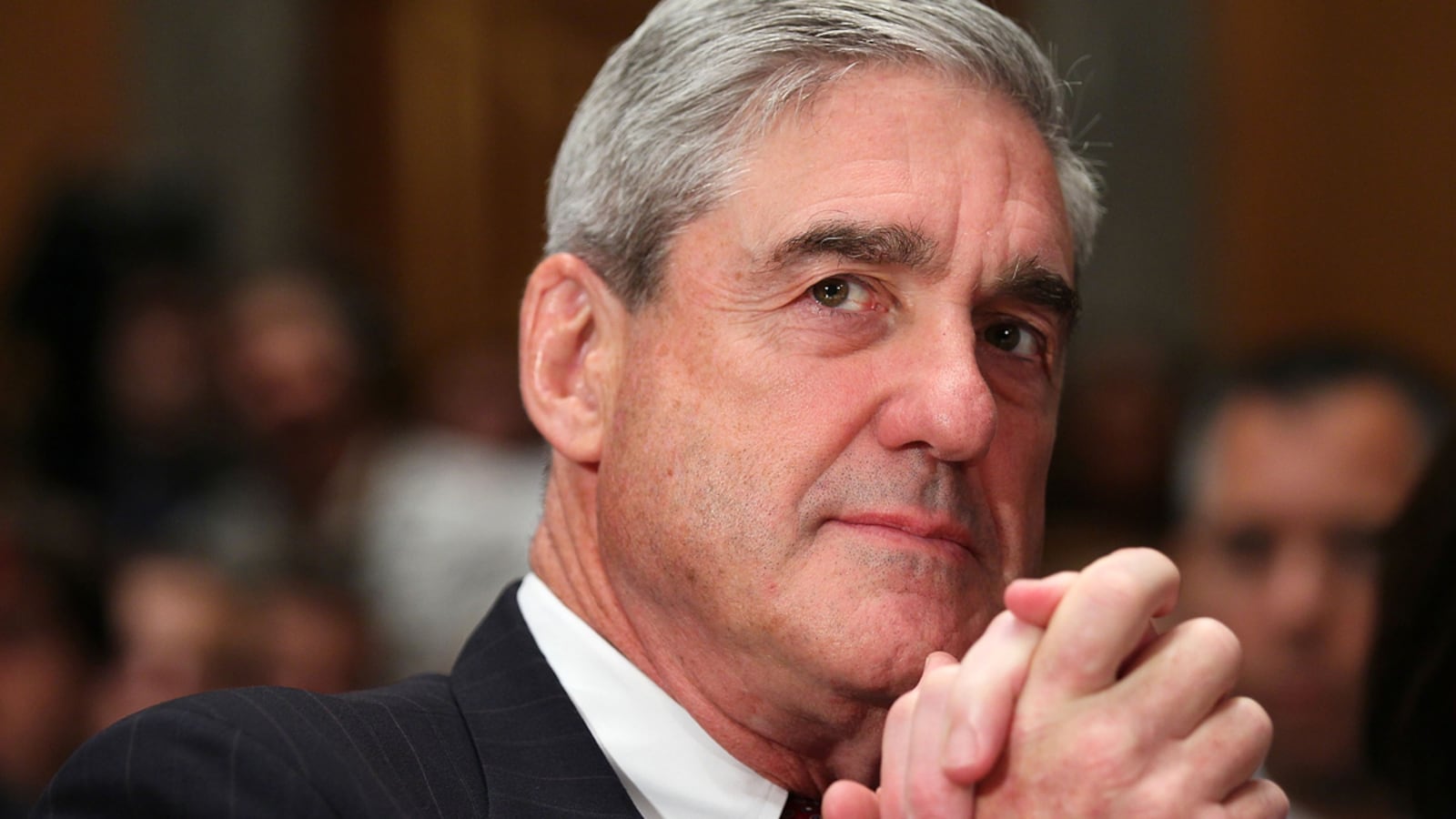Shortly after the Sept. 11, 2001, attacks, FBI director Robert S. Mueller III told his staff in Washington that 10 lawyers from the general counsel’s office would be moved into national security to meet the demands of the fight against Al Qaeda. A senior member in the general counsel’s office balked: “Look, I’m not going to get killed in Congress for losing an EEO [equal employment opportunity] case.”
Mueller shot back, “But I am for losing a terrorism case.” That was about as emotional as he got, says Marion “Spike” Bowman, then head of the national security legal unit, adding, “He sort of raised his voice, and it had this exasperated sound.”
A former Marine captain and prosecutor, Mueller combines qualities of both, allowing him to weather the terrorism attacks with equanimity—one week after he’d started his job—and to oversee the biggest change in FBI history, transforming it from an organization that investigates crimes into one that aggressively tries to stop them before they occur. It was a metamorphosis encompassing enormous bureaucratic and philosophical shifts, yet Mueller himself is about as risk averse, predictable, and, as even his admirers admit, boring as a person can be.
Luckily for him, this is Washington, where dullness can be prized if it is effective.
President Obama championed the FBI director’s work this summer; afterward, members of Congress rewrote laws so Mueller could continue past his 10-year term limit as director, and the Senate voted unanimously to keep him. Mueller will testify Tuesday at a Senate Homeland Security Committee hearing, “Ten Years After 9/11: Are We Safer?”—and it is time to take stock of his role in ensuring that we are.
After 9/11, the FBI got hammered for not doing enough to stop the hijackers. And over the next decade Mueller worked tirelessly to improve counterterrorism efforts at the bureau, arriving at his Pennsylvania Avenue office at 6:15 a.m. and staying until 7 p.m., as he attempted to prevent the next attack. During this time, the size of the bureau’s counterterrorism structure tripled, wrote Dana Priest and William M. Arkin in Top Secret America: The Rise of the New American Security State, and in one year alone FBI agents helped to stop five terrorism attacks, according to former assistant director John Miller. These efforts helped to soften criticism of the bureau and were steps to restore its image as a place for people “who wear a white hat all the time,” as former deputy general counsel Bowman puts it.

Mueller looks like a squeaky-clean FBI guy: at 67, he has silver hair, smoothly parted on the left, and dresses in bureau-style white shirts and dark suits. “You know that an FBI agent never takes his tie off,” says Harry “Skip” Brandon, a former deputy assistant director. “We sleep in them, and he fit right in.” Mueller not only appeared respectable, he also helped the bureau maintain an honorable record of interrogations during the Bush administration when the CIA relied too often on brutality, and he has famously spoken out against torture.
Yet Mueller, as those who work at the FBI know, is far from perfect. “Two more years?” says one special agent, referring to the extension that he was granted this summer, adding, “There was just this big, collective sigh.” Meanwhile, critics outside the bureau say Mueller has smashed civil rights by bugging mosques and conducting illicit sting operations (PDF) and has stonewalled congressional leaders who provide oversight of the FBI. These critics claim that his strength as a leader, exhibiting a steely resolve cloaked in a bureaucrat’s dark suit, is also his biggest flaw. On a personal level, critics say, he has hurt people who work for him, particularly whistleblowers, and overall has done more harm than good to the bureau and to the nation.
As a federal agency, the FBI is subject to oversight by members of Congress. That means congressional leaders ask the FBI director about personnel, budgets, and other issues in order to ensure that the bureau is run smoothly and that taxpayer dollars are spent wisely. Mueller has avoided being pinned down on dozens of issues, however, and he has frustrated the efforts of congressional leaders to determine how resources are allocated. On the Hill, he is known as Mr. I Don’t Know, I Will Get Back to You.
By one conservative count (mine), Mueller has said, “I’d have to get back to you,” or some variation on that theme, 57 times at congressional hearings over the past five years. He has avoided answering questions about the mundane, such as security measures along a two-mile stretch of a New Jersey road, and the profound. When Sen. Arlen Specter asked him at a Judiciary Committee hearing in September 2008 why Congress was not informed of a “secret, warrantless” wiretapping program, for example, Mueller replied in a baroque manner: “I was of the belief that those who should be briefed in Congress were being briefed.”
When Mueller says, “I don’t know, sir, I’d have to look into it,” members of Congress try to track down the answers afterward from him and his deputies at the FBI, but they rarely make headway.
Officials at the Government Accountability Office recently asked Mueller, who declined to be interviewed for this article, to provide information about his records on filling counterterrorism positions, but even on “something as dull and boring as vacancies,” as a congressional staffer put it, he stalled.
He also has sidestepped questions about the FBI’s role in a controversial gun-trafficking investigation, Operation Fast and Furious, run by agents from the Bureau of Alcohol, Tobacco, Firearms, and Explosives in 2009. Congressional leaders have agreed to meet with Mueller privately about the gun-trafficking investigation as a compromise—yet another instance in which officials who are entrusted with the oversight of the FBI have been forced to accommodate him, and the activities of the bureau remain shrouded in secrecy.
Meanwhile, people at the bureau say they have been slammed for trying to make things better. Mike German, a former FBI agent, says he was impressed when Mueller became director and said he would protect whistleblowers, though that feeling did not last. “I became a whistleblower,” says German. “And he did not protect me.” German, who is now working for American Civil Liberties Union, was one of several former agents who tried to stop wrongdoing at the bureau—in German’s case, he’d protested the shoddy handling of a Florida terrorism case in 2002—only to find themselves punished by superiors.
Ultimately, though, the verdict on Mueller and the FBI rests not with outside critics or with former agents but with the president and members of Congress, and they seem to believe that he is a man of integrity, or at least they’d rather not tangle with him. As one congressional staffer puts it, “Nobody wants to be the person who’s second-guessing the cop.” In post-9/11 America, that is job security.






